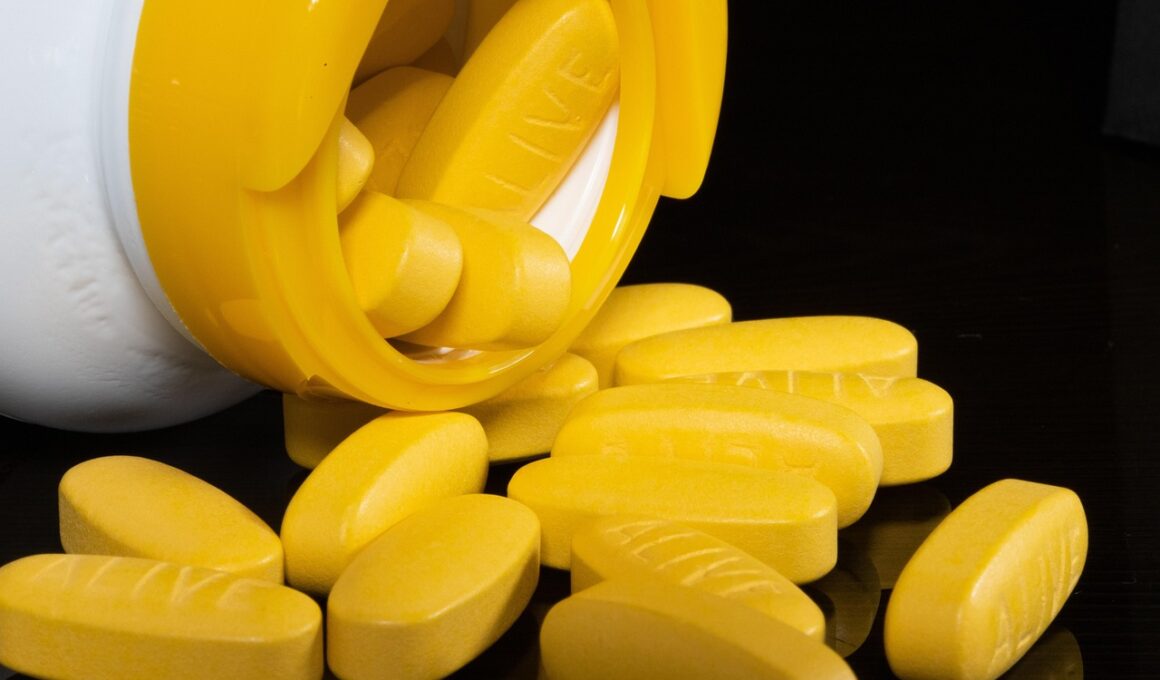Supplements to Manage Senior Cat Diabetes
Managing diabetes in senior cats can be a challenging task for pet owners. Understanding the specific dietary needs is essential for maintaining their health. Diabetic cats often need a low carbohydrate and high protein diet, making supplementation important. Supplements can help in regulating blood sugar levels and preventing complications. They provide essential nutrients that help senior cats cope with metabolic changes. There are various types of supplements available for managing diabetes effectively. These include omega-3 fatty acids, fiber supplements, and antioxidants. They can help improve insulin sensitivity, resulting in better glucose control. Before adding any supplement, it is crucial to consult with a veterinarian. This ensures the chosen supplements are suitable and pose no health risks. Careful monitoring of your cat’s condition can help adjustments when necessary. Using diabetic-friendly treats in moderation can also assist with managing their sugar intake. Supplements combined with a proper diet can greatly influence a senior cat’s life quality. Incorporating a holistic approach is essential in managing diabetes for your furry friend. By supporting their nutrition, you can ensure they remain active and healthy for years to come.
Various supplements can be particularly beneficial for senior cats diagnosed with diabetes. Omega-3 fatty acids, found in fish oils, offer significant anti-inflammatory properties. They are known to support heart health and can improve glucose metabolism, making them a suitable choice for diabetic cats. Fiber supplements, such as psyllium husk and canned pumpkin, help regulate blood sugar levels by slowing down glucose absorption. Introducing these into your cat’s diet can stabilize their blood sugar. Antioxidants play a critical role in combating oxidative stress, especially in older cats, and may help manage diabetes. Vitamins C and E, along with selenium, can boost overall health. Many cat owners have reported positive outcomes by utilizing specific formulations designed for diabetic pets as well. Always read product labels carefully and consult with a vet prior to administration. Another option to explore is supplementing with natural herbs like cinnamon and alpha-lipoic acid, known for their potential benefits in blood sugar regulation. Regular check-ups with your veterinarian are vital in ensuring any supplements used align well with your cat’s ongoing treatment plan.
Key Benefits of Senior Cat Supplements
The benefits offered by senior cat supplements can directly impact their overall health and well-being. Increased energy levels are often an immediate perk observed by pet owners after incorporating specific supplements. This boost allows senior cats to engage in playful and routine activities, enhancing their quality of life. The right supplements can improve physical health by supporting joint function, which often deteriorates in older cats. A healthy joint function enables your cat to move comfortably without pain, contributing positively to their physical activity. Additionally, many supplements can strengthen the immune system, providing crucial defense against common infections. This is especially beneficial for cats with diabetes, as they may be more susceptible to illnesses. Digestive health is another area that can see improvement with the introduction of high-quality dietary supplements. Maintaining a regular digestive system helps in managing blood sugar levels more efficiently. Regular vet consultations can help tailor a supplement regimen that suits your cat’s unique needs. Remember that optimal health and well-being are attainable through proper nutrition and supplements tailored for diabetic management of your senior cat.
When choosing supplements for diabetes management in senior cats, prioritize high-quality, veterinarian-approved products. It’s vital to avoid those filled with artificial ingredients or fillers, as they may do more harm than good. Look for trustworthy brands known for their commitment to quality and safety. Checking labels for certifications can also provide peace of mind. Reading reviews from other pet owners may give insights into product effectiveness, helping you make an informed decision. Some cats are sensitive to new foods, so gradual introduction of any supplement is recommended. Always monitor your cat’s reaction when introducing a new product into their diet. Consult your veterinarian if you observe abnormal behavior or health issues. Regular blood sugar monitoring at home can provide a clear picture of how effective the supplements are. This proactive approach helps in adjusting dosages as needed. Additionally, maintaining consistency in meals can help stabilize blood sugar levels better, and supplements should be administered with this in mind. With each addition of a supplement that supports your cat’s well-being, you can feel confident in them leading a happy, healthy life.
Safety Considerations for Supplements
Engaging with supplements for senior cats and diabetes management requires a thoughtful approach. Important considerations need addressing to ensure their safety and effectiveness. It is crucial always to consult with a veterinarian before introducing any new supplements into your cat’s diet. They can help identify specific needs based on your pet’s health history and current medication. Certain supplements may interfere with prescribed medications, which could complicate treatment. Keep track of your cat’s health status and report any ongoing issues or potential side effects to your vet. Each cat is unique and responds differently to supplements, emphasizing the need for personalized care plans. Ensure any supplements you choose are formulated specifically for feline health, particularly for senior cats with diabetes. They will contain the right balance of vitamins and minerals needed to support metabolism and overall health. Pay attention to dosage instructions; adhering to recommended guidelines can prevent adverse reactions. Obtaining these essential checkpoints can guarantee that supplements enhance your cat’s quality of life rather than hinder it. Continuous evaluations are necessary to ensure successful diabetes management and overall wellness.
Incorporating supplements into your senior cat’s diabetes management plan can yield long-term benefits. Ensuring balanced nutrition helps in effectively managing the condition while enhancing their life quality. As they age, providing proper support for their unique metabolic needs becomes increasingly important. Supplements can bridge nutritional gaps, especially in those with specific health challenges. Ongoing communication with your veterinarian allows for adjustments based on your cat’s needs, ensuring their management plan adapts as their condition changes. Lifestyle considerations also play a significant role; regular exercise must accompany nutritional support. Engaging in play can help maintain a healthy weight, which is crucial for diabetic cats. With the right combination of diet, supplements, and exercise, it’s possible to improve not just their health, but also their overall demeanor. As a devoted pet owner, observing changes in behavior and energy levels will help verify the effectiveness of implemented supplements. Regular veterinary check-ups will provide guidance and necessary adjustments to the management plan. It’s all about creating a harmonious balance between the right nutrition and active lifestyle in ensuring the best diabetes care for your senior cat.
Final Thoughts on Senior Cat Diabetes Management
Managing diabetes in senior cats is a long-term commitment that requires diligence and patience. Regular check-ups, combined with well-chosen supplements, form the bases of effective diabetes management. It’s equally vital to monitor their diet carefully, ensuring meals are low in carbohydrates while appropriately balanced. Consistent exercise should be encouraged as part of their daily routine. Engaging in light play sessions will stimulate their physical and mental capabilities, while also assisting in maintaining healthy weight. As part of a comprehensive management plan, supplements serve as important supportive tools for enhancing overall feline health. Seek advice from your veterinarian to develop a multifaceted approach to diabetes care. Combining dietary changes, good supplement choices, and regular vet visits can significantly improve your cat’s quality of life. Share your experiences with fellow cat owners who face similar challenges; their insights can offer new perspectives and solutions. Patience is key, as each senior cat may respond differently to treatment. Ultimately, ensuring your beloved companion enjoys a good living experience should be your primary goal.
Continually fostering a warm and supportive environment enhances the emotional well-being of senior cats. The bond shared between owner and pet plays a significant role in managing chronic conditions like diabetes. Engaging in regular social interactions along with providing ample affection creates a soothing atmosphere for your feline. Moreover, involving your cat in calm activities can alleviate stress, which directly influences their health. Stress is known to affect insulin levels negatively, making your cat’s condition harder to manage. Attention to detail in their daily care routines can bring noticeable improvements over time. A peaceful environment, coupled with routine and consistent care, greatly benefits elderly cats. Remember that behavior changes may indicate underlying health issues, prompting the need for veterinary evaluation. Ensuring your cat receives plenty of love, playtime, and mental stimulation can make this challenging journey more manageable. Although managing senior cat diabetes can be daunting, access to support systems and resources can empower you to provide optimal care. Education, along with shared experiences among cat owners, can help find the best approaches for progressive diabetes management in senior cats.


